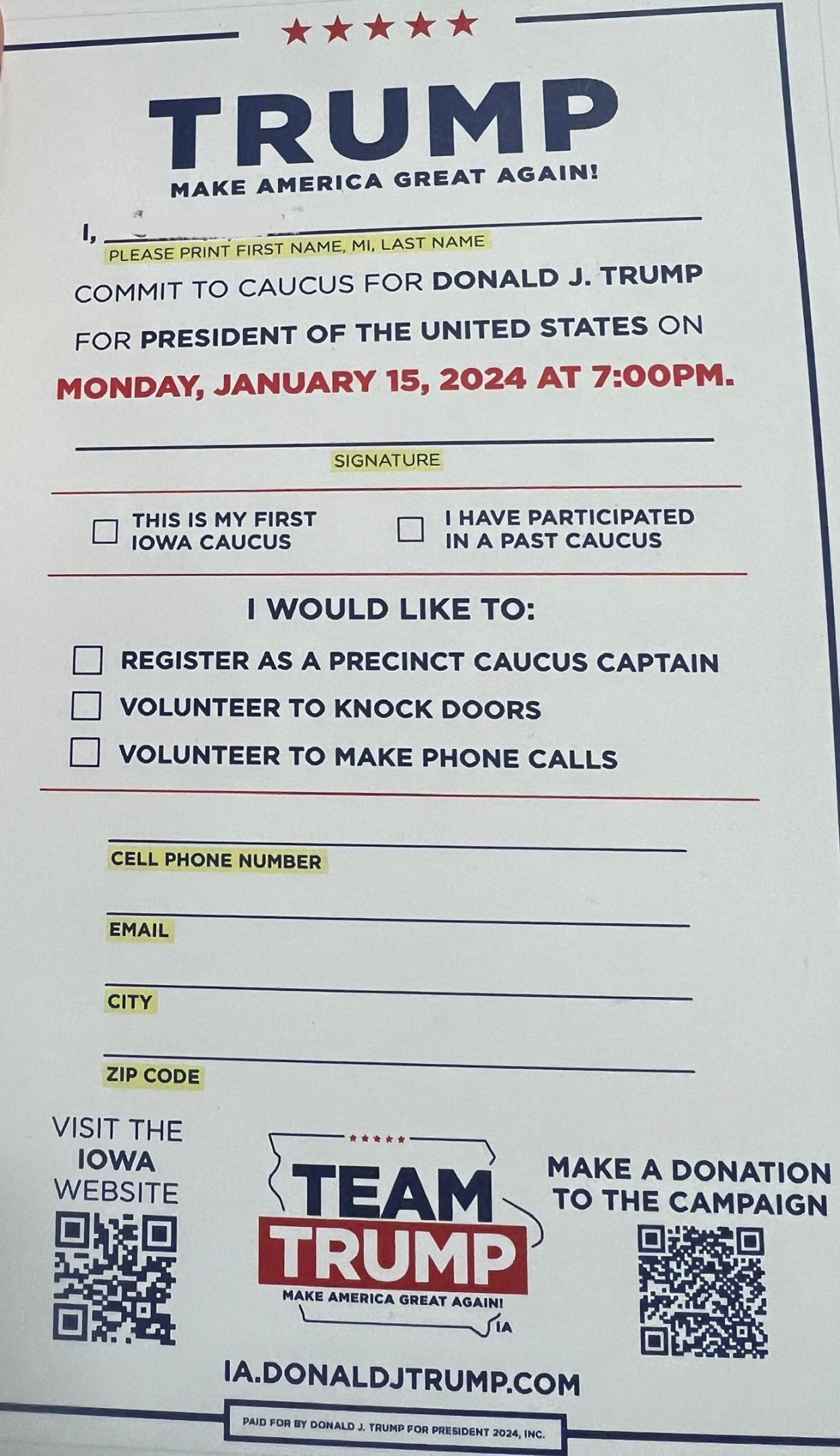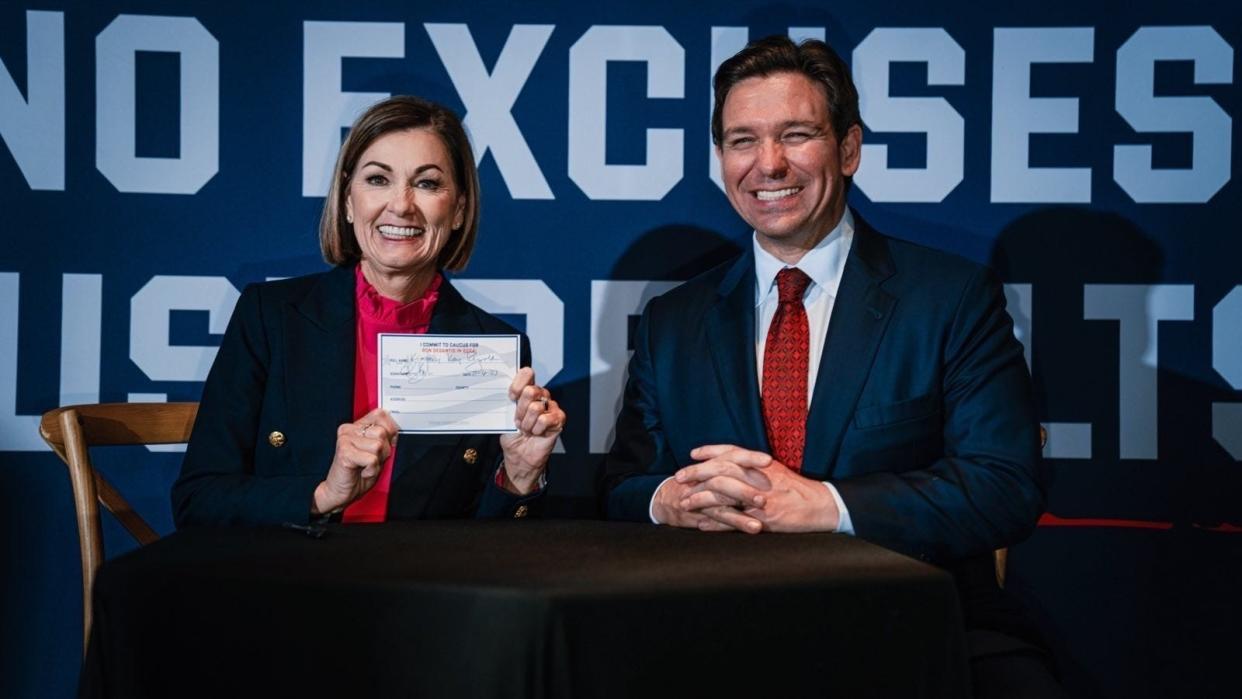What is a commit-to-caucus card? And what does it mean for the Iowa presidential race?
Any interested Iowa caucusgoer who walks into a campaign rally for Donald Trump is unlikely to make it to the ballroom before being asked if they have signed a commit-to-caucus card.
When Iowa Republicans gather at 7 p.m. on Jan. 15 at caucus sites across the state, they'll make their presidential preferences known to the world. Until then, the closest thing campaigns have to guaranteed support are those cards.
Here's what you need to know about commit-to-caucus cards in Iowa — and what they mean for both voters and campaigns alike.

What is a commit-to-caucus card?
Each Republican campaign has its own form of the commit-to-caucus card — a small piece of cardstock where an Iowan signs their name and pledges to caucus for the candidate on Jan. 15.
The information on the card can differ by campaign, but generally it includes a space for the person to sign their name, as well as provide their address, email and phone number.
Once filled out, campaign volunteers or officials will collect the cards.
More: Can anyone beat Donald Trump in Iowa? 40 years of Iowa Polls show the race isn't over
Commit-to-caucus cards: What are they for?
The commit-to-caucus cards represent at their core a promise between an Iowan and a campaign organizer — but they also help the candidate in a couple key ways.
First and most importantly, the card gives the campaign contact information for a potential Iowa caucusgoer — one of the most important currencies in the caucuses. The campaign could solicit donations or ask the person to volunteer, expanding its roots in the state.
Second, it adds to a number the campaign can brag about. There only are so many ways to tout your candidate's support or progress in Iowa — primarily polling numbers, and sometimes large crowds at events. Caucus cards provide a hard number for organizers to present, as if to say "here's how many people we've already gotten on board."

Never Back Down, the super PAC backing Florida Gov. Ron Desantis, says it's collected more than 30,000 cards in Iowa; the Trump campaign said in September that it had gathered more than 10,000 during the Iowa State Fair alone.
Iowa Gov. Kim Reynolds, when she endorsed DeSantis in November, filled out a card pledging her support.
More: Iowa political leaders are endorsing DeSantis. Trump still thinks the caucuses are a lock
Does filling out a card mean you don't need to caucus Jan. 15?
No.
A commit-to-caucus card is just that — a commitment. It doesn't replace in-person caucusing on Jan. 15 to select the nominee, nor does it legally oblige or lock in a voter to the candidate.
Even if someone has filled out a card for one candidate, they can choose to caucus for another or not to caucus at all.
Galen Bacharier covers politics for the Register. Reach him at gbacharier@registermedia.com or (573) 219-7440, and follow him on Twitter @galenbacharier.
This article originally appeared on Des Moines Register: How Republican presidential candidates find who Iowans will caucus for




